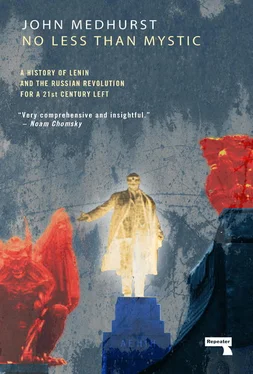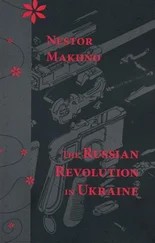This was wishful thinking. Russia was moving away from communalism. Its industrial expansion was deliberate and state-led, heavily assisted by massive foreign investment. Its by-product was the formation, growth and solidification of a permanent working class in the cities of the Russian Empire. With some exceptions such as printers and metal workers, who could command higher wages for their skills, the conditions in which this primitive proletariat lived were appalling. They were jammed tight into the tenements of St Petersburg, Moscow, Kharkov and Kiev, in which there were hardly any sewage systems, running water or electricity. In 1909, 30,000 of them died in a cholera outbreak in St Petersburg that could have been prevented if the Tsarist government had instituted basic urban hygiene.
Despite its dazzling intelligentsia and world-class novelists (the latter half of the 19th century saw Turgenev, Chekhov, Tolstoy and Dostoyevsky at their zenith), Imperial Russia had a stunted civil society, hardly any democratic institutions, and a trade union movement with no legal means of expression. Consequently, the Marxism that took shape within that society was simplistic and inflexible. In Western Europe, Marxism, although the official creed of the mighty German Social Democratic Party, had begun to reform itself in reaction to social and economic developments, and some of the socialist movement’s bolder intellectuals, such as Eduard Bernstein, began to state the obvious.
As the 19th century drew to a close, Bernstein suggested that the European working class could now wrest significant improvements in its social and working life from the capitalist state. He therefore advocated proceeding along these lines rather than preparing for violent revolution. His controversial Evolutionary Socialism (1899) not only questioned the realism of a revolutionary strategy by reference to how European socialist parties actually conducted themselves, but also criticised several of Marx’s core concepts. He pointed to the complexity of modern techno-industrial society and the great variety of social strata and economic forms found within it. His conclusion–that capitalism might not end in a vast entropic implosion after which socialism would rise from its ashes, but would, like all previous societies, evolve and transform over time–profoundly shocked the faithful.
In later years, the Polish philosopher Leszek Kolakowski, whose three-volume Main Currents of Marxism (1976-78) remains the most intellectually rigorous examination of Marxist philosophy and economics, forensically identified logical flaws in Marx’s work. Amongst other concepts, he questioned Marx’s theory of value, i.e. that it is the amount of “labour-power” put into a product that gives it its value, and therefore any profit from that product above the wages given to the labourer is surplus value taken by the capitalist owner. Kolokowski argued that it is impossible to identify where that value exists and how it could be separated from other elements that go into the final “exchange-value” of a product (such as the pre-existing labour and value inherent in tools and machinery, capital investment to bring labour and tools together, the effect of sales techniques, the fluctuations of supply and demand and other determinants of price). Given this, Marx’s theory of value “provides no way of empirically confirming or refuting what it says”. 9This has never bothered most socialists, for whom it is a moral condemnation of wage and wealth inequality rather than an empirical theory in the real sense of the term.
Despites its impact on the European labour movement, Marxist economic theory was seldom examined seriously by mainstream economists. Capital volumes I to III, and its theoretical development by Marxist economists from Rudolf Hilferding to Paul M. Sweezy, was sidelined by the academic establishment outside the Soviet Union until the 1970s. A notable exception was the Keynesian economist Joan Robinson’s An Essay on Marxian Economics (1942). Robinson’s work was an early trailblazer of modern perspectives on Marxist economics, which after the crash of 2008 has seen renewed advocacy by the likes of Amartya Sen and Meghnad Desai. Robinson found “many pointers in Capital to a theory of effective demand”, and lauded Marx for producing a “long-run dynamic analysis” of capitalism. In her view, Marx had useful things to say about the process of capital accumulation and its development into monopoly capital. Less useful were his contradictory analyses of the labour theory of value and the falling rate of profit. Of the former Robinson wrote, “The concept of value seems to me to be a remarkable example of how a metaphysical notion can inspire original thought, though in itself it is quite devoid of operational meaning”. 10
These conceptual flaws were not lost on those who broadly agreed with Marx’s analysis of capitalism and the class exploitation on which it rested. This led dissident Marxists and other left-libertarians, many of whom saw no need to repeat pro infinito every proposition of an economic theorist who died in 1883, to revise, update and refine the doctrine. The work of writers such as Murray Bookchin, Rudolf Bahro, André Gorz, Michael Albert and Michael Lowy is far removed from the hyper-theorised edicts of Marxist Structuralists like Althusser or philosophical Leninists like Žižek and Badiou. Whilst these writers do not form a doctrinal school they do share a refusal to endorse outdated theories simply because they have become sacrosanct. Taken together they offer a lively revision of Marxism that retains its fundamental questioning of capitalism as an economic model.
There was always criticism of Marxism and Leninism from the left–most obviously the anarchist critique from Bakunin to Rocker–but it was only from the 1960s that it began to merge with a broader left-libertarian current. One of the prime movers of this new synthesis was Murray Bookchin, a Trotskyist union organiser in the 1940s who moved away from Marxism to anarchism. Although fully engaged with the us New Left of the 1960s, he was dismayed at the ease with which some of its leaders fell back into Marxism-Leninism, which he felt was a regressive step from the inclusive radicalism of its early days. In 1969 he penned a blistering attack on these tendencies called “Listen, Marxist!”, a cri de coeur for leftists who saw no future in democratic centralism and the Vanguard Party. It formed part of his Post-Scarcity Anarchism (1971), which with The Ecology of Freedom (1982) advocated a “Social Ecology” that fused practical anarchism and eco-socialism and was a guiding influence on the new German Green Party.
In “Listen, Marxist!”, Bookchin took aim not only at the record of Lenin and the Bolsheviks but at “the historical limits of Marxism”. He found that work that was “liberating a century ago” was a straitjacket today. Basing himself on the student protest movement against the Vietnam War, he criticised an exclusive focus on the working class as the sole agent of revolutionary change “at a time when capitalism visibly antagonises and produces revolutionaries among virtually all strata of society, particularly the young”. He pointed out that by 1960 capitalism, through nationalisation of public utilities and welfare provision, implemented policies which used to be regarded as socialist–although he did not foresee how these would be reversed by right-wing neoliberal governments in the near future. Whilst he acknowledged that traditional classes had not disappeared, and nor had class struggle, he argued that its terms and geography had changed. It was now “the physiology of the prevailing society, not the labour pains of birth”. 11These were to be found elsewhere, in new forces of resistance and in a rejection of all hierarchies of oppression, including those of the traditional left.
Читать дальше












